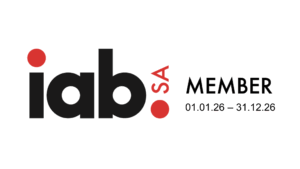Cape Town – Basic Education Minister Siviwe Gwarube has reiterated that every child in South Africa — regardless of nationality or documentation status — has the right to be in school.
In a post shared on X, Gwarube said schools are not permitted to turn away learners who do not have birth certificates, ID cards, or study permits.
She stressed that the law guarantees education for all children within the country’s borders.
“Schools may not refuse to admit a child because they do not have documentation. The right to basic education extends to all children within our borders — documented or undocumented,” Gwarube said.
The minister also condemned what she described as “misinformation” being circulated online, claiming that undocumented learners cannot be admitted.
“This is false and dangerous,” she wrote.
“The law is clear — schools must accept all learners.”
[Media Release] Admission requirements for learners in public schools.
The law says that no child may be denied access to education because of missing documents. In line with the South African Schools Act (SASA), as amended by the BELA Act of 2024, all public schools are… pic.twitter.com/nXf2pRCbXE
— Siviwe Gwarube (@Siviwe_G) October 14, 2025
According to Gwarube, principals and governing bodies are legally bound to enrol learners first and assist parents or guardians to obtain the necessary documents later.
“Principals must assist parents and guardians to get the necessary documents, but under no circumstances should a child be turned away,” she stated.
Gwarube further emphasised that education is a constitutional right, not a privilege.
“Our commitment is simple: every child deserves a place in a classroom. No child should be left behind because of bureaucracy or misinformation,” she said.
The Department of Basic Education (DBE) has also clarified the documentation requirements for different categories of learners:
-
Undocumented learners: All learners must be admitted even without documents. Principals are required to assist parents in regularising the learner’s documentation to ensure no child is denied access to education.
-
Learners whose parents are foreign nationals: Admission requires the learner’s foreign birth certificate and passport, a valid study visa or residence permit, and the parents’ passports and visas or permits. These ensure the learner’s identity and lawful residence.
-
Learners whose parents are refugees or asylum seekers: Schools should obtain the parent and learner’s asylum seeker or refugee visas, the learner’s birth certificate (if born in South Africa), and a long-term visa to be submitted within three years. This verifies the learner’s legal protection status.
-
Learners in alternative care: A court order granting guardianship or custody and the learner’s unabridged birth certificate are required. These documents confirm the lawful care arrangement.
-
Learners with South African parents: Schools require an unabridged birth certificate, the parent(s)’ South African ID or ID card, and, if applicable, death certificates of deceased parents. These documents confirm the learner’s identity and parentage.
Her comments come amid ongoing public debate over the admission of undocumented children to South African schools.
The minister’s statement aligns with the provisions of the South African Schools Act and the Basic Education Laws Amendment (BELA) Act of 2024, which both affirm that all learners — irrespective of citizenship or immigration status — have the right to basic education.
The BELA regulations also empower principals to admit learners provisionally when official documents are unavailable, while the Department of Basic Education assists families to regularise their paperwork.
Follow African Insider on Facebook, X and Instagram
Picture: X/@Siviwe_G
For more African news, visit Africaninsider.com
Compiled by Lisabeal Nqamqhele



